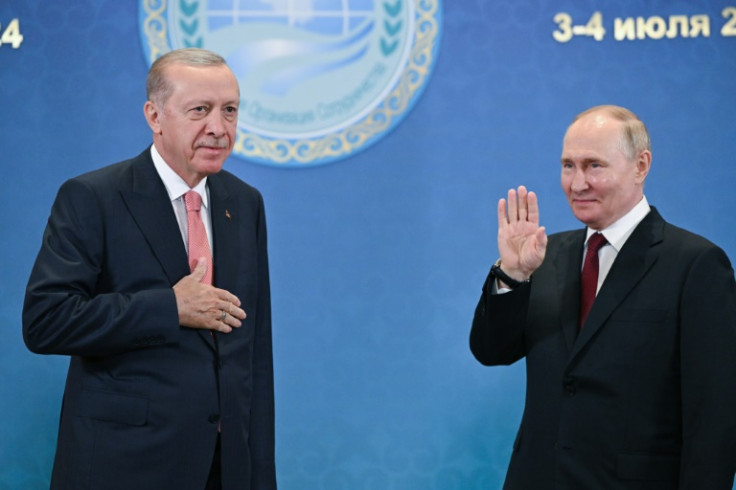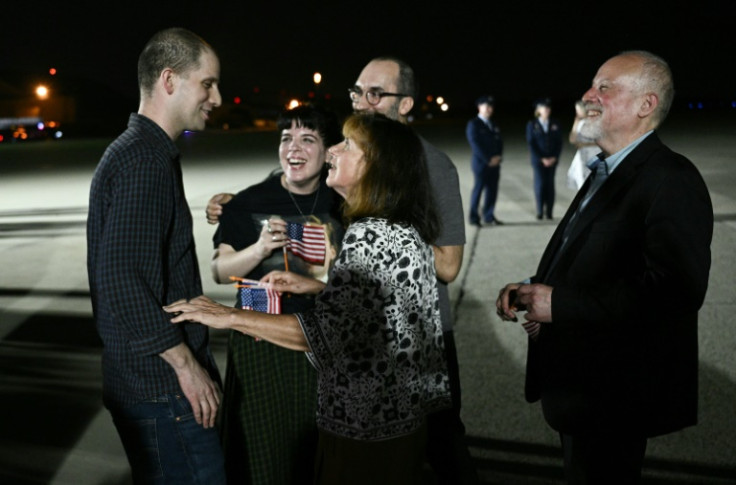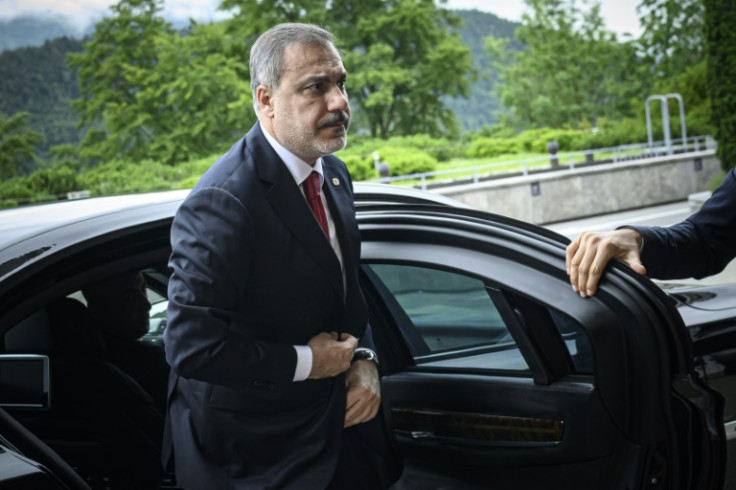Russia Prisoner Swap: Turkey's Diplomatic Coup

The historic East-West prisoner swap Thursday brokered by Ankara has marked the triumphant return of Turkish diplomacy onto the world stage, despite quarrels with its NATO allies.
US President Joe Biden thanked Turkey for its part in the largest East-West exchange since the Cold War involving two dozen prisoners, including a top Russian intelligence colonel and hitman, that all came together on the tarmac of Ankara airport.
"Turkey has pulled off a diplomatic gamble," said Sinan Ulgen, an associate researcher at the Carnegie Europe think tank.
Turkish presidential spokesman Fahrettin Altun revealed that the "Turkish secret services established communication and mediation channels", showing that Turkey "was capable of speaking with different parties as a trustworthy and reliable partner".
Months of secret negotiations leading up to the deal "demonstrate the importance of Turkish diplomacy", Ulgen added, with Ankara "stepping in as a facilitator or mediator in conflicts between its neighbours, in particular, between Russia and the West."
"The initiative gives Turkey diplomatic prestige," he said, as Ankara often diverges from its traditional Western allies on the Middle East and Israel, "given its strong support for Hamas".
Turkey has often pitched itself as a mediator in the war in Ukraine on the other side of the Black Sea, and in Gaza, highlighting its influence as a Muslim giant and fervent supporter of the Palestinian cause.
While Turkey's vehement rhetoric against Israel compromised its involvement in the Gaza peace talks -- with President Recep Tayyip Erdogan calling Prime Minister Benjamin Netanyahu a "Nazi" -- Turkey could has been a key broker in Russia-Ukraine negotiations.
Ankara has maintained ties with both Moscow and Kyiv since the start of the war -- and remains the only government to have hosted the rivals' top diplomats, Sergey Lavrov and Dmytro Kuleba, in March 2022. Erdogan has remained in direct contact with presidents Vladimir Putin and Volodymyr Zelensky.
Turkey also brokered a UN-backed deal to lift a Russian blockade on Ukrainian grain exports in 2022 and allow their safe passage through the Black Sea.
Erdogan previously mediated a September 2022 prisoner exchange between Ukraine and Russia that led to the release of 215 Ukrainian prisoners and the return of besieged Ukrainian Azov Brigade commanders from Mariupol.
But the Kremlin on Friday pointed out that any Ukraine negotiations would be "completely different" from Thursday's swap.
By making its key role public, "Turkey basically is signalling that, yes, some of its NATO allies, including the US, may not see eye-to-eye with Ankara in certain areas, but in other key areas, Turkey is crucial," said Soner Cagaptay of the Washington Institute for Near East Policy.
"Turkey is the unsung hero of (Thursday's) prisoner exchange," said Lucian Kim, a Ukraine analyst for the Crisis Group.
"Ankara facilitated the swap thanks to the close ties Erdogan has maintained with the Kremlin despite NATO membership and quiet support for Ukraine," said Kim.
Turkey's Foreign Minister Hakan Fidan lauded the role of its MIT intelligence agency -- which he used to head -- in the swap. And the former spymaster promised Turkey would "continue to be at the centre of peaceful diplomacy, in line with our president's vision."
Its ambitions to be a diplomatic player extend well beyond its immediate neighbours. Turkey is also attempting to act as a broker in African conflicts. Fidan on Saturday will meet with Ethiopia's Prime Minister Abiy Ahmed in Addis Ababa, where Turkey is pushing for peace talks between Ethiopia and Somalia, said researcher Ulgen.


© Copyright AFP 2024. All rights reserved.





















